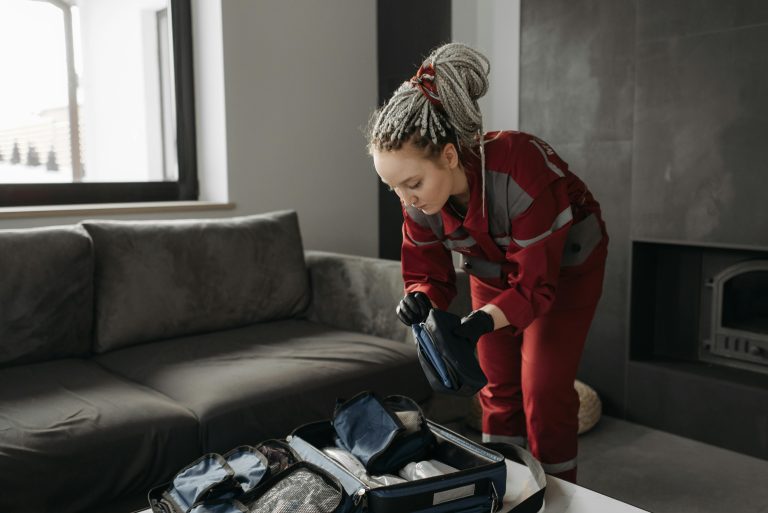Becoming a new parent is an exhilarating experience, but let’s be real—it can also be exhausting. Sleepless nights, constant diaper changes, and figuring out how to balance work, home life, and self-care can feel overwhelming. If you’ve ever wished for an extra set of hands, you’re not alone. Many parents find themselves looking for additional support, and hiring an au pair can be an excellent solution.
An au pair is more than just a nanny; they are a live-in caregiver from another country who provides childcare while experiencing life in your home. This arrangement offers both practical help and cultural exchange, making it an enriching experience for both the family and the au pair. But how does the process work, and what should you expect? Let’s break it down.
What is an Au Pair, and How Can They Help?
The term “au pair” originates from French and means “on par” or “equal to.” An au pair is considered a temporary family member rather than an employee, helping with childcare and light household tasks in exchange for room, board, and a stipend. Unlike traditional babysitters or nannies, au pairs typically integrate into the daily life of the family, making it a unique childcare solution.
For new parents, an au pair can be a game-changer. They provide:
- Flexible childcare: Unlike daycare centers with rigid hours, an au pair can help when you need it most.
- One-on-one attention: Your baby gets personalized care in a familiar environment.
- Light household assistance: While their primary role is childcare, au pairs can help with baby-related tasks like meal prep and laundry.
- Cultural exposure: Your child can be introduced to a new language and traditions from an early age.
How to Find and Match with an Au Pair
Hiring an au pair isn’t as simple as posting a job ad. There’s a structured au pair process to ensure the right match for both the family and the au pair. Here’s how it typically works:
Step 1: Choose an Agency
Most families go through an au pair agency that handles screening, visas, and training. Agencies ensure candidates meet certain requirements, such as age (typically between 18-26 years old), experience with children, and language proficiency. Some well-known agencies include Cultural Care Au Pair, AuPairCare, and InterExchange.
Step 2: Define Your Family’s Needs
Before you start reviewing candidates, take time to identify what you’re looking for:
- What schedule will your au pair need to follow?
- Do you prefer someone with infant care experience?
- Are you looking for a specific language or cultural background?
- What personality traits would fit well with your family dynamic?
Being clear about your expectations will help you find the best match.
Step 3: Review Applications and Conduct Interviews
Once you’ve shortlisted potential au pairs, it’s time to interview them. Since they will be living with you, focus on compatibility as much as qualifications. Here are some key questions to ask:
- Why do you want to be an au pair?
- What experience do you have with children, especially newborns or infants?
- How would you handle common challenges, like a fussy baby or a toddler’s tantrum?
- Are you comfortable with household tasks related to childcare?
Many families conduct interviews over video calls to get a sense of the au pair’s personality and communication style.
Step 4: The Matching Process
When both the family and the au pair feel it’s a good fit, the agency facilitates the formal match. This includes paperwork, visa arrangements, and travel planning. The au pair is usually required to complete a training program before arrival, covering childcare basics, first aid, and cultural adaptation.
Adjusting to Life with an Au Pair
The first few weeks are crucial for setting expectations and creating a comfortable living situation for everyone involved. Here’s what to focus on:
1. Clear Communication
- Establish house rules from day one, including work hours, curfews (if any), and personal space.
- Discuss emergency procedures, including medical contacts and house safety rules.
- Be open about feedback—both giving and receiving it—to ensure a smooth transition.
2. Building a Relationship
Your au pair isn’t just an employee; they’re a part of your home. Including them in family meals, outings, and traditions helps them feel welcome and appreciated. At the same time, respecting their personal time is important to prevent burnout.
3. Setting Expectations for Childcare
Make sure your au pair understands your parenting style, routines, and any specific methods you prefer (like sleep training or baby-led weaning). A written schedule or daily checklist can be helpful in the beginning.
4. Allowing Time for Adjustment
Both your family and the au pair will need some time to settle into this new dynamic. Expect a learning curve and be patient as everyone adjusts.
Challenges and How to Handle Them
No arrangement is without its hiccups. Here are some common challenges and solutions:
- Cultural Differences: Encourage open discussions about customs, expectations, and misunderstandings.
- Homesickness: Support your au pair in connecting with other au pairs in your area and allowing them time to video call home.
- Parenting Differences: Clearly communicate your preferred approach to childcare and provide constructive feedback when needed.
- Work-Life Balance: Ensure your au pair gets their scheduled time off and has opportunities for rest and social activities.
Final Thoughts: Is an Au Pair Right for Your Family?
Bringing an au pair into your home is a unique and rewarding experience that goes beyond just childcare. It’s an opportunity for cultural exchange, lifelong friendships, and creating a support system during the demanding early years of parenthood.
If you’re a new parent looking for flexible, personalized help, an au pair might be the perfect addition to your family. With careful planning and open communication, this arrangement can lead to a fulfilling experience for everyone involved.
So, while you may not get full nights of sleep just yet, having an au pair means you’ll have a trusted helping hand—someone to share the journey of parenthood with you.









